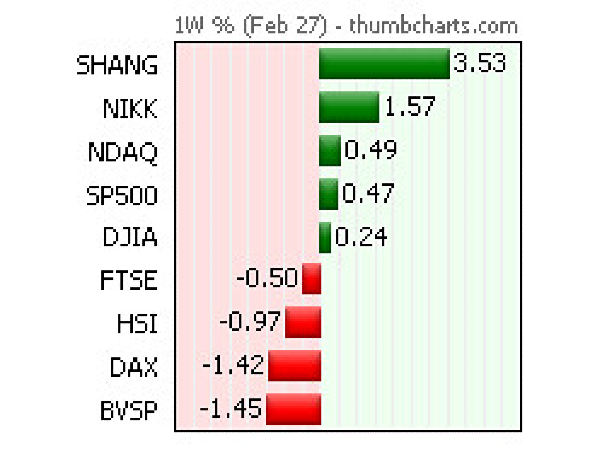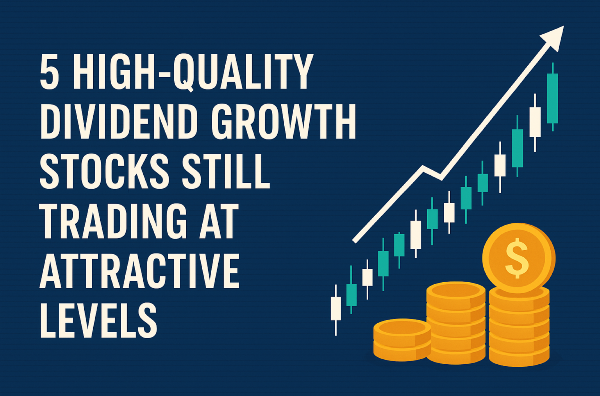Introduction
The global transition toward clean energy and sustainable transportation is reshaping the investment landscape. Electric vehicles (EVs) and renewable energy are at the heart of this transformation, driving innovation and capital flows into companies that promise to lead the next era of growth. While large-cap giants like Tesla and NextEra Energy often dominate headlines, small-cap stocks—companies with market capitalizations between $300 million and $2 billion—offer investors unique opportunities for outsized returns. These nimble innovators are often at the forefront of technological breakthroughs, supply chain advancements, and niche market solutions that can rapidly scale in a favorable policy and consumer environment.
This essay explores why small-cap stocks in the EV and renewable energy sector are attractive, what to look for when selecting them, and profiles several promising companies poised for breakthrough growth.
Why Focus on Small-Cap EV and Renewable Energy Stocks?
- High Growth Potential
Small-cap companies have more room to grow compared to established large-cap players. As the EV and renewable energy markets expand, these firms can rapidly increase revenue and market share, leading to significant capital appreciation for early investors.
- Innovation and Agility
Small-caps are often more agile and innovative, quickly adapting to new technologies, consumer preferences, and regulatory changes. Their ability to pivot and develop cutting-edge solutions makes them key drivers of industry disruption.
- Acquisition Targets
Large corporations frequently acquire successful small-cap companies to bolster their own technology, product lines, or market presence. Such acquisitions can deliver substantial premiums to shareholders.
- Policy Support
Global governments are incentivizing clean energy and EV adoption through subsidies, tax credits, and stricter emissions regulations. Small-cap firms that align with these policies can benefit from accelerated growth and funding.
Key Trends Fueling Growth in the Sector
- Electrification of Transportation
The shift from internal combustion engines to electric vehicles is accelerating worldwide. Small-cap companies are innovating in battery technology, charging infrastructure, lightweight materials, and EV components.
- Renewable Energy Expansion
Solar, wind, and energy storage are experiencing rapid adoption as costs decline and grid integration improves. Small-caps are developing advanced solar panels, next-generation wind turbines, and efficient energy storage solutions.
- Decentralized Energy Solutions
Microgrids, distributed solar, and smart energy management systems are enabling communities and businesses to generate and manage their own power, reducing reliance on centralized utilities.
- Supply Chain Localization
Geopolitical tensions and supply chain disruptions are prompting a shift toward localized production of critical components like batteries and semiconductors, benefiting nimble small-cap manufacturers.
What to Look for in the Best Small-Cap EV and Renewable Energy Stocks
- Strong Revenue Growth
Look for companies with consistent and accelerating revenue growth, indicating successful product adoption and market expansion.
- Technological Edge
Firms with proprietary technology, patents, or unique processes are better positioned to defend their market share and command premium pricing.
- Strategic Partnerships
Collaborations with established industry players, government agencies, or research institutions can provide validation, funding, and access to new markets.
- Robust Balance Sheet
A healthy cash position and manageable debt reduce the risk of dilution or financial distress during periods of rapid expansion.
- Clear Path to Profitability
While many small-caps prioritize growth over profits in the early stages, a roadmap to sustainable profitability is essential for long-term success.
Top Small-Cap EV and Renewable Energy Stocks to Watch
Aeva Technologies Inc. (AEVA)
Aeva develops next-generation LiDAR sensors critical for autonomous vehicles and advanced driver-assistance systems (ADAS). Its proprietary frequency modulated continuous wave (FMCW) technology offers superior range and accuracy, attracting partnerships with major automotive OEMs. As the EV and autonomous vehicle markets grow, Aeva’s technology could become an industry standard.
Website: https://www.aeva.com
Eos Energy Enterprises Inc. (EOSE)
Eos Energy specializes in zinc-based battery storage systems for grid-scale renewable energy integration. Its batteries are safer, longer-lasting, and less reliant on rare minerals than traditional lithium-ion solutions. With rising demand for energy storage to stabilize renewable grids, Eos is well-positioned for growth.
Website: https://www.eose.com
Beam Global (BEEM)
Beam Global designs and manufactures solar-powered EV charging infrastructure. Its off-grid, rapidly deployable charging stations address the growing need for flexible and sustainable EV charging solutions. The company’s customer base includes government agencies, municipalities, and commercial fleets.
Website: https://www.beamforall.com
Array Technologies Inc. (ARRY)
Array Technologies is a leading provider of solar tracking systems that increase the efficiency of large-scale solar installations. Its robust, low-maintenance trackers help maximize energy output and reduce costs for utility-scale solar projects.
Website: https://arraytechinc.com
ElectraMeccanica Vehicles Corp. (SOLO)
ElectraMeccanica develops single-passenger electric vehicles tailored for urban commuting and last-mile delivery. Its flagship SOLO EV addresses the growing demand for affordable, efficient, and environmentally friendly transportation in congested cities.
Website: https://www.electrameccanica.com
Case Study: Eos Energy Enterprises (EOSE)
Eos Energy’s zinc-based battery technology addresses key limitations of lithium-ion batteries, such as fire risk, supply chain constraints, and limited cycle life. The company has secured large supply agreements with utilities and renewable project developers, and its technology is gaining traction as the renewable energy sector seeks scalable storage solutions. Eos’s robust patent portfolio and expanding manufacturing capacity position it as a potential leader in the energy storage market.
Risks and Considerations
● Volatility: Small-cap stocks are more volatile than large-caps, with larger price swings during market corrections.
● Execution Risk: Rapid growth can strain resources and management teams, leading to operational challenges.
● Competition: The EV and renewable energy sectors are highly competitive, with constant technological advancements.
● Regulatory Changes: Shifts in government policy or subsidy programs can impact demand and profitability.
Conclusion
Small-cap stocks in the EV and renewable energy sector offer investors a unique blend of innovation, growth potential, and exposure to transformative global trends. By focusing on companies with strong technology, strategic partnerships, and robust financials, investors can identify the next generation of industry leaders. While risks are inherent, the rewards for those who conduct thorough research and maintain a long-term perspective can be substantial. As the world accelerates its shift toward clean energy and sustainable transportation, today’s small-cap innovators could become tomorrow’s market giants.






















Introduction The global transition toward clean energy and sustainable transportation is reshaping the investment landscape. Electric vehicles (EVs) and renewable energy are at the heart of this transformation, driving innovation and capital flows into companies that promise to lead the next era of growth. While large-cap giants like Tesla and NextEra Energy often dominate headlines, small-cap stocks—companies with market capitalizations between $300 million and $2 billion—offer investors unique opportunities for outsized returns. These nimble innovators are often at the forefront of technological breakthroughs, supply chain advancements, and niche market solutions that can rapidly scale in a favorable policy and consumer environment. This essay explores why small-cap stocks in the EV and renewable energy sector are attractive, what to look for when selecting them, and profiles several promising companies poised for breakthrough growth.
Why Focus on Small-Cap EV and Renewable Energy Stocks?
Key Trends Fueling Growth in the Sector
What to Look for in the Best Small-Cap EV and Renewable Energy Stocks
Top Small-Cap EV and Renewable Energy Stocks to Watch Aeva Technologies Inc. (AEVA) Aeva develops next-generation LiDAR sensors critical for autonomous vehicles and advanced driver-assistance systems (ADAS). Its proprietary frequency modulated continuous wave (FMCW) technology offers superior range and accuracy, attracting partnerships with major automotive OEMs. As the EV and autonomous vehicle markets grow, Aeva’s technology could become an industry standard. Website: https://www.aeva.com Eos Energy Enterprises Inc. (EOSE) Eos Energy specializes in zinc-based battery storage systems for grid-scale renewable energy integration. Its batteries are safer, longer-lasting, and less reliant on rare minerals than traditional lithium-ion solutions. With rising demand for energy storage to stabilize renewable grids, Eos is well-positioned for growth. Website: https://www.eose.com Beam Global (BEEM) Beam Global designs and manufactures solar-powered EV charging infrastructure. Its off-grid, rapidly deployable charging stations address the growing need for flexible and sustainable EV charging solutions. The company’s customer base includes government agencies, municipalities, and commercial fleets. Website: https://www.beamforall.com Array Technologies Inc. (ARRY) Array Technologies is a leading provider of solar tracking systems that increase the efficiency of large-scale solar installations. Its robust, low-maintenance trackers help maximize energy output and reduce costs for utility-scale solar projects. Website: https://arraytechinc.com ElectraMeccanica Vehicles Corp. (SOLO) ElectraMeccanica develops single-passenger electric vehicles tailored for urban commuting and last-mile delivery. Its flagship SOLO EV addresses the growing demand for affordable, efficient, and environmentally friendly transportation in congested cities. Website: https://www.electrameccanica.com
Case Study: Eos Energy Enterprises (EOSE) Eos Energy’s zinc-based battery technology addresses key limitations of lithium-ion batteries, such as fire risk, supply chain constraints, and limited cycle life. The company has secured large supply agreements with utilities and renewable project developers, and its technology is gaining traction as the renewable energy sector seeks scalable storage solutions. Eos’s robust patent portfolio and expanding manufacturing capacity position it as a potential leader in the energy storage market.
Risks and Considerations ● Volatility: Small-cap stocks are more volatile than large-caps, with larger price swings during market corrections. ● Execution Risk: Rapid growth can strain resources and management teams, leading to operational challenges. ● Competition: The EV and renewable energy sectors are highly competitive, with constant technological advancements. ● Regulatory Changes: Shifts in government policy or subsidy programs can impact demand and profitability.
Conclusion Small-cap stocks in the EV and renewable energy sector offer investors a unique blend of innovation, growth potential, and exposure to transformative global trends. By focusing on companies with strong technology, strategic partnerships, and robust financials, investors can identify the next generation of industry leaders. While risks are inherent, the rewards for those who conduct thorough research and maintain a long-term perspective can be substantial. As the world accelerates its shift toward clean energy and sustainable transportation, today’s small-cap innovators could become tomorrow’s market giants.